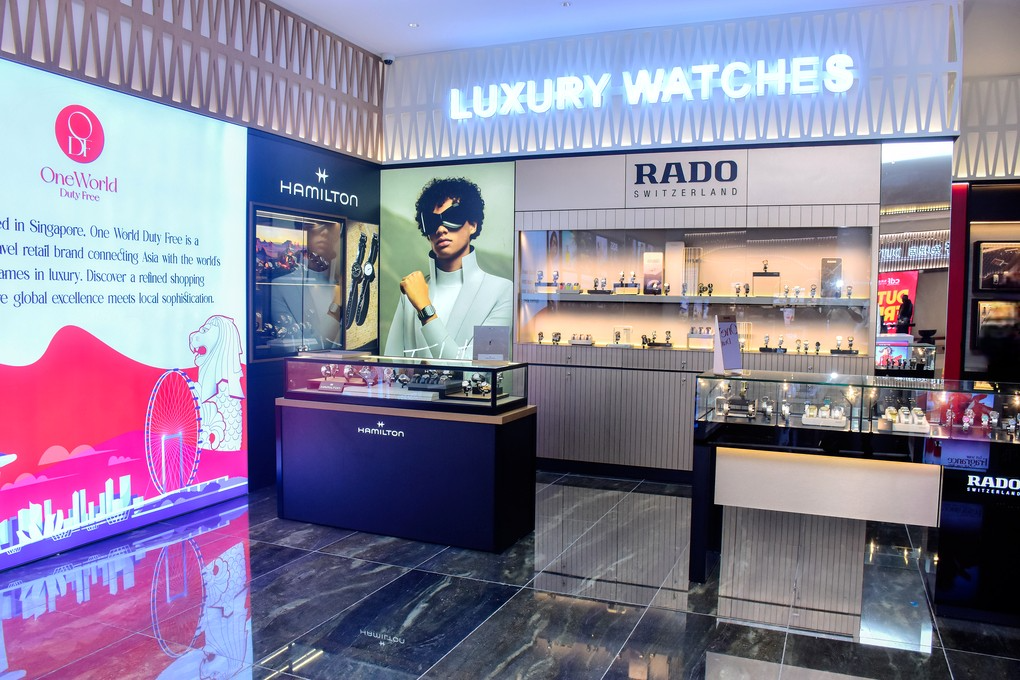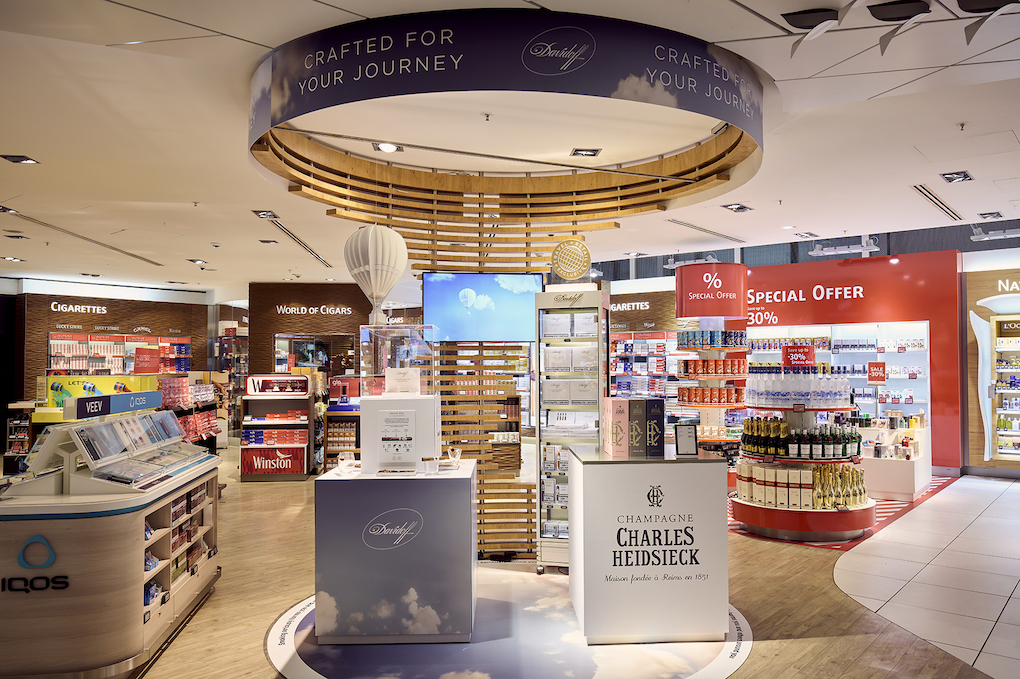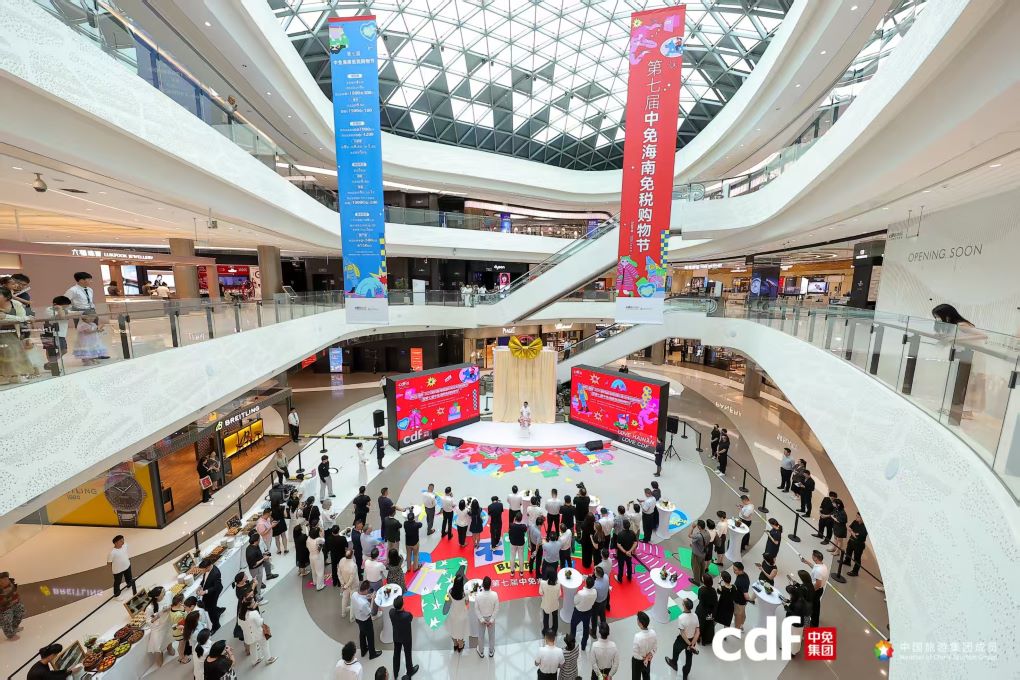GERMANY. On 27 April leading travel retailer and distributor Gebr. Heinemann revealed a strong set of annual results for 2022, with turnover reaching €3.8 billion, up by +81% year-on-year. The figure, achieved despite the impact of war in Ukraine and continuing travel restrictions in some markets, represented 79% of 2019 turnover. Crucially, the group also returned to pre-pandemic levels of profitability last year after breaking even in 2021.
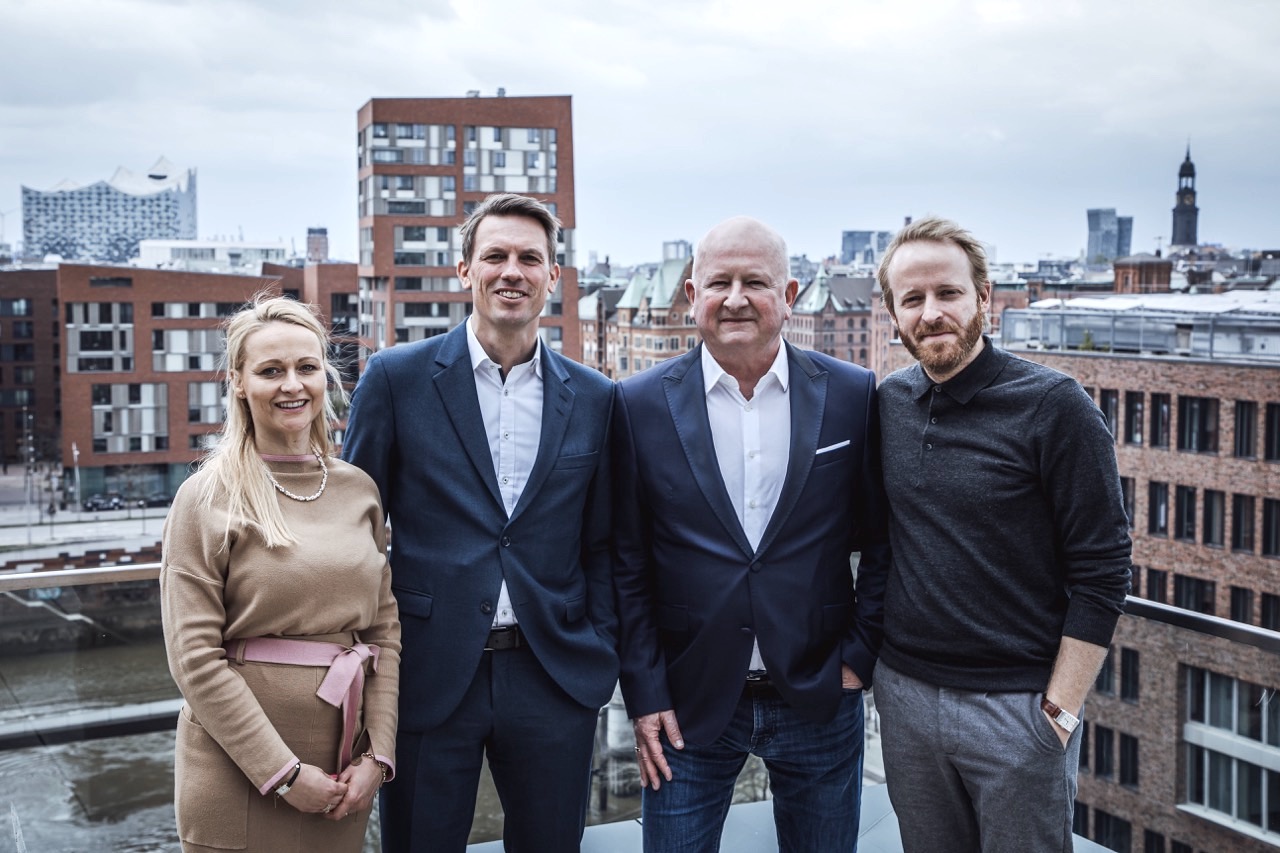
The annual Gebr. Heinemann press conference in Hamburg was hosted by Co-CEOs Max Heinemann, Chief Financial Officer Dr. Kai Deneke and Director Corporate Communications & External Affairs Nina Semprecht.
Max Heinemann spoke about the remarkable resilience of the company and wider industry.
“We are very proud of how we and the industry have recovered. In 2022 we participated in better times and better moments for this industry. Our business model proved resilient. In fact now we are challenged in terms of the speed of recovery. We come from a very painful period to being able to speak about growing pains, which in itself is a luxury.
“The resilience of this industry is based on the traveller itself, which also makes it one of the most beautiful industries probably to be in, because that’s what safeguards us into the future – the willingness and freedom of people to travel and to exchange across different cultures, and from business to leisure.
“We repeat our continuing commitment as a family company to travel retail, led by our people. We stick to our values, our purpose and our culture.”
In a key message in the company’s annual report, he added: “2022 showed us that no player in our industry vanished nor has the market lost its competitiveness. On the contrary: competition for the benefit of travellers is fierce. At the same time, 2022 also confirmed that we have taken the right steps within the last three years to go strong into the future. Our necessary cost-cutting measures during the crisis will lead us to a more efficient company. We executed an important strategic relaunch with our mission statement. Essentially, we pressed the refresh button.”
We feature key talking points from the press conference below.
A diversified business
Senior Heinemann executives highlighted how the broad mix of channels – not just retail and distribution but also trading across airports, maritime, borders, diplomatic and others sales outlets – helped the company emerge solidly from the pandemic.
At airports, locations such as Istanbul and Tel Aviv are already above 2019 sales levels with strong investment paying off in Sydney, with Duesseldorf (where Heinemann returns this year after a ten-year absence) among the new or upgraded locations set to open.
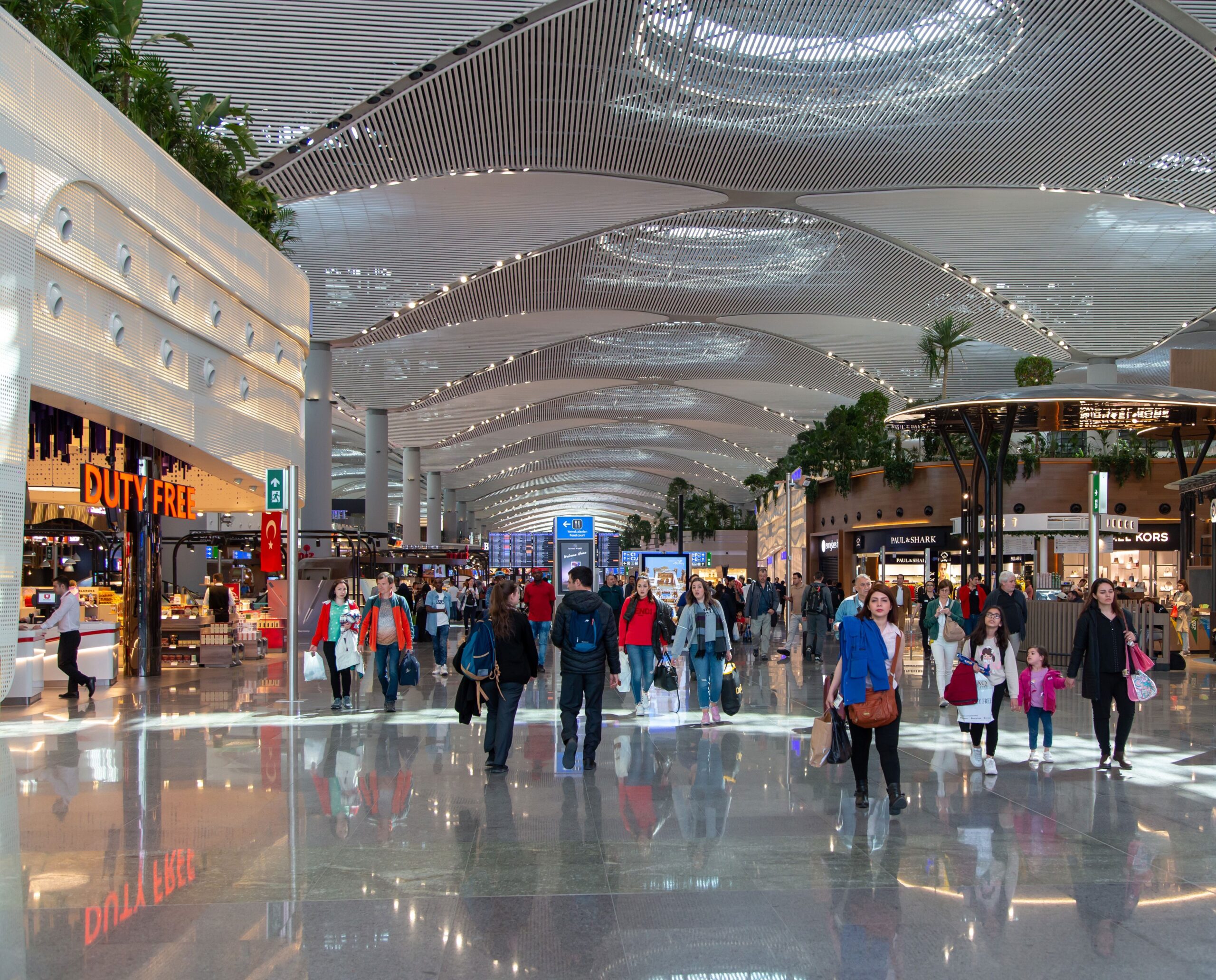
In cruise, new business last year onboard Royal Caribbean’s Wonder of the Seas will be complemented by Icon of the Seas to come in 2024.
And the border business, principally in Eastern Europe, has held up well, despite the clear impact from the Russia-Ukraine conflict. In Ukraine, ten of 13 border stores that operate under the Duty Free Trading name are still open.
Along the borders of Bulgaria, Romania, Poland and the Czech Republic, Gebr. Heinemann operates shops under the Travel FREE brand as joint ventures or subsidiaries, covering around 45 stores in all.
Director Sales Central & Southeast Europe Christoph Stump noted in the annual report: “The performance of the border shop business in the region is to some extent heterogeneous and varies according to the profiles of travellers at each border. The Travel FREE locations in Bulgaria and Romania have shown a particularly strong performance, with growth in sales of around +30%.”
Milestones in 2022 included the redesign of the Travel FREE shops in Varna and Burgas in Bulgaria and the opening of a new location in Ruse. In Poland, the Travel FREE shop in Lubieszyn was remodelled and enlarged, focusing on perfume, cosmetics, fashion, accessories and premium spirits. The original Travel FREE shop in Drobeta-Turnu Severin, Romania, was replaced by a new building with more than twice as much retail space.
In 2023, a shop opening in Świnoujście (Poland) is planned for the third quarter, as well as the expansion of the Travel FREE shop by a further 400sq m in Constanta, Romania.

Heinemann noted that the border shops have departed from their original, more purpose-oriented image. Of the future, Stump said: “We want to offer a shopping experience with luxury products. In the assortment, we will create special incentives through travel exclusives, with product sizes that are not available in the domestic market and with items that are perfect for gifting.”
He termed this development ‘Border Shop 2.0’, with appealing environments designed by Travel FREE to include coffee shops, playgrounds, and service offers such as petrol stations and e-charging stations. “We can design something like this with attractive partner companies as subtenants, especially in places where our Travel FREE shops are located on our own sites,” Stump added.
“Shoppers have become more demanding. Whereas in the past they mainly bought cigarettes and spirits, today we are seeing an increased interest in premium brands for perfume, cosmetics, fashion & accessories. Premium and luxury spirits have also developed very well. Travelling consumers are always interested in trying something new. Of course, a competitive price remains an important criterion for the purchase decision.”
On a related note, Gebr. Heinemann is planning to take steps into the border shop business in Africa, together with local partners. It means it will supply the African market as a retailer rather than only as a distributor in future.
On diversity more broadly at Heinemann, Co-CEO Raoul Spanger said: “It’ is important that we renew our formula for each market. We are not only a global travel retailer, we are a global trading house. When we go into markets, we evaluate what is right for this market, from an airport concession to a joint venture, to working with a distribution customer, whether they buy 100% of the merchandise from us or only a category. Our approach is always adapted to the market needs. All of this helped us come back quicker.”
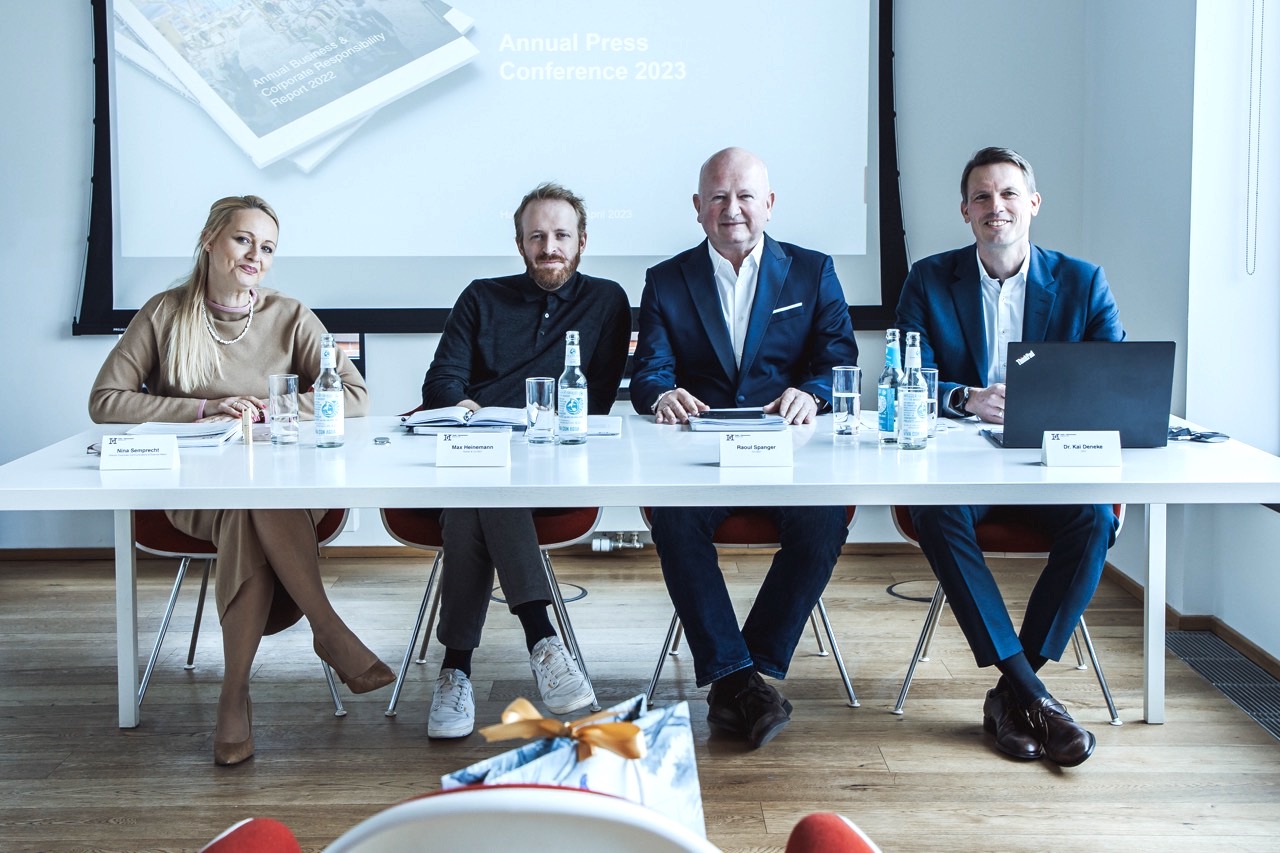
Asked how far Heinemann will diversify into new channels such as duty paid and F&B, Max Heinemann said: “First we are committed fully to travel retail, that is clear. We have spoken of course about how we diversify, and we know that some competitors are more diversified that we are in the airport space.
“We have also looked at and tested out different paths and models and partnerships. It is a question of how we want to diversify? Do we go via tender, which includes setting our ‘red lines’? We want to invest in profitable businesses because we need to do that.
“We know how tough some contracts are and it is a volume game at some stage. That also explains why there are no new players coming into this industry as you have to be established. But we do want to open some of these doors within the industry. And that might come through a GHARAGE investment or a core business investment into a certain diversified area. We are discussing F&B because it makes sense as a consolidation move. If you can consolidate new business in a marketplace, it starts to make more sense.
“But it also needs to be the right level and fit. If you take food, you have different levels at airports. We do things with a high quality level, we aim to be seen in a particular way and we have our own culture, so not every opportunity here is the right one for us.”
On how the company views its investment agenda, Raoul Spanger said: “We are investing hugely in our shops and will continue as retail is 80% of the business. But we are also aware that if you lose say three big contracts in three years, which can happen under the concession business model, then your business disappears.
“That means managing length of contracts, which is not entirely in your hands, and investing in channels which are more profitable than big concessions. And this may be other regions or other channels. And then there are new categories, of which F&B is one for us. There it doesn’t make any sense to start up because we are not food & beverage people. So that means you need the right opportunity, maybe to buy into a company, and this is an option for us.
“Nevertheless, it will be always double-sided. Some airports that are small or medium may want to have one package, retail and F&B. But others want to have the best food & beverage operator on one hand and the best retailer for travel value and duty free but don’t want the same company. But what we can confirm as a lesson from the pandemic is that diversification is on the agenda.”
Managing risk and ‘red lines’
In 2021, amid the damaging impact of the pandemic on its concessions, Gebr. Heinemann outlined a series of ‘red lines’ that it said it would not cross when bidding in future. It highlighted the importance of flexibility, long-term thinking and avoiding fixed-term guarantees in contracts that did not respond to crisis situations.
This year, the retailer withdrew from the duty free tender process at Spain’s airports, saying it did not correspond with the contractual ‘red lines’ it defined during the pandemic. Co-CEO Raoul Spanger did not elaborate on the specifics of the AENA tender as that process continues, but spoke about the importance of defining internally what matters to the company when new bids arise.
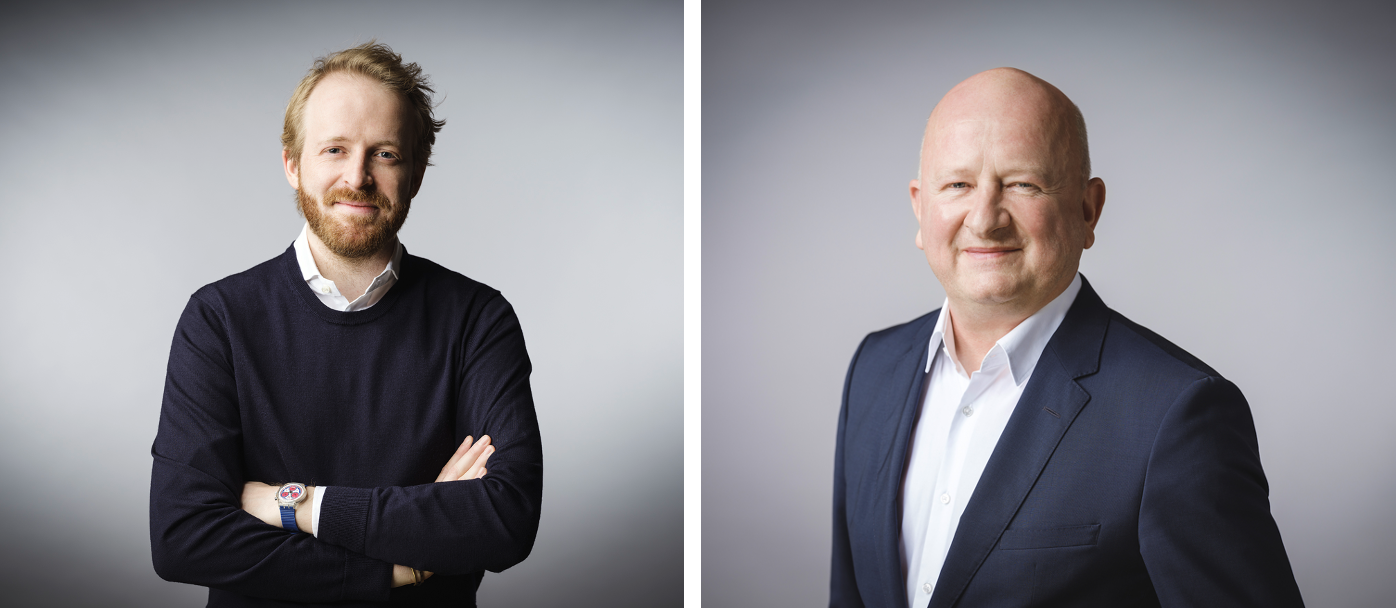
Spanger said: “We intend to manage our risk as we never know when the next pandemic or similar event will come along. We don’t accept certain elements of risk – our ‘red lines’ – and will be selective. We have to keep risk at a level where, if issues arise, the future of our company is not at risk. But beyond that we are open to many formulas with our partners, from concession to JV, as we have been through our history.
“In the end, in all of this, and also with our suppliers, good partnerships are only good if they work in difficult times. So the crisis has been positive in this way too.”
He expressed some concern that certain airports are deferring investment in infrastructure when they should be taking advantage of the new commercial opportunities now that travel is ramping up. “We see what happened with Istanbul, a new airport. They were ready. Other airports are investing too but we see that others are waiting as they lost a lot of money. Those are the ones, with their retail environments, that will fall back. Now is the time to invest.
“We are doing that in Sydney, Oslo, Duesseldorf and elsewhere. We can see that travel retail is the fastest recovering industry in the world. Everybody needs to believe in it.”
Price pressures and trading up
Assessing how trends in consumer spending are developing, CFO Dr. Kai Deneke said: “From last Summer, with the strong leisure demand, spends per passenger were relatively high, above pre-crisis levels. We see that now levelling out as the passenger mix is normalising. But we do see still positive effects at the SPP level. For 2023, we are carefully optimistic that the capacity issues at airports and border controls are improving so that we will see further increases this coming summer.”
Co-CEO Spanger also highlighted that strengthening of spend per head, notably in core European markets as travel resumed. “Now we need to move as an industry towards the next step of trading up.
“We have learned after two years of not flying that people bought better quality. We strongly believe we have to step by step cut the lower part of our assortment where we may be comparable with supermarkets.
“We must represent a more premium environment and ensure our shops are different from other environments. If you are able to increase the price level and increase the upper end in particular, then real turnover development is possible. We need to ensure we can show an exclusive assortment at fair pricing – and eliminate the supermarket comparison.”

Spanger also noted that the mid-market segment was under pressure across categories.
“We still run successful promotions aggressive price promotions in our industry as these are really about savings. Mid-market is difficult on price and also for brands. In this area many brands are having huge issues.
“The top brands worldwide are getting stronger and really are the bread and butter of our business in a positive sense. There is also a lot of regional merchandise coming in, which we need too, but where there is no price comparison to the local market, though those prices must be fair. But mid-priced, mid-range brands are under pressure for sure.
Finally, on pricing, Co-CEO Max Heinemann explained that “active pricing” was really the key to the question of value and unlocking consumer spend.
“It is just not a simple formula, like taking a couple of percentage points off the domestic market and then you are done with it. It is more targeted to different customer segments coming through the airport, with the offer changing for each of those groups by season and understanding what room we have to underline the offers or exclusiveness for them. Then that is layered over with the experiences at each location.
“So you will see difference in approach. Price harmonisation is not our game in travel retail. But active price advantage is one of the promises we try to bring forward.”
Accelerating the CSR agenda
Gebr. Heinemann highlighted the strides it has taken in the area of Corporate Social Responsibility (CSR) with a number of major goals from now to 2023 under key pillars: Energy & Emissions, Waste & Packaging, Product Portfolio and People.
Having already switched to green electricity in 2021, Gebr. Heinemann used 94% renewable energy in 2022. In addition, the company opened its Norway HUB, the first regional warehouse near Oslo, in November 2022. The new warehouse will save around 300,000 transport kilometres per year between Germany and Norway – equivalent to around 570 tons of carbon dioxide.
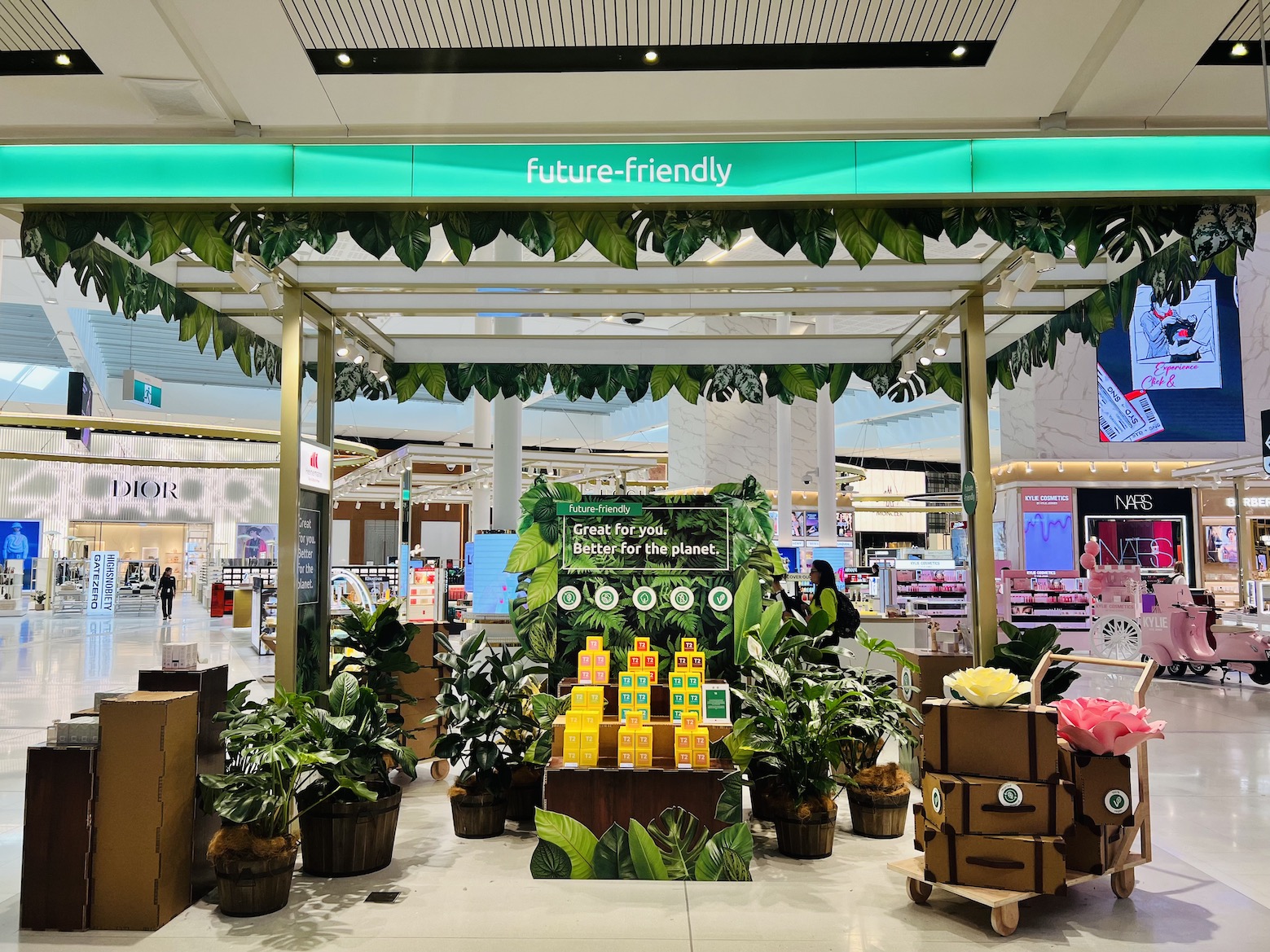
Gebr. Heinemann has replaced 25% of consumables in its Hamburg headquarters and the logistics centres with sustainable alternatives. In terms of diversity, the company has increased the proportion of women in top management positions year-on-year from 14% to 21%, and cited the proportion of women in leadership posts overall as 39%.
In the annual report, Chief Commercial Officer Dr. Dirk Schneider repeated a key sustainability goal for product supply. “By 2030, we will achieve more than half of our turnover through sustainable products and by working with responsible suppliers.”
The key incentive, he noted, is that sustainable products will gain visibility in the future. Heinemann’s own ‘Future Friendly’ assortment is available at Hamburg, Frankfurt, Berlin, Vienna, and Budapest airports, alongside Sydney in Asia Pacific. More locations will follow this year.
Towards a global business
While still small in relative terms compared to its traditional heartland of Europe, Heinemann remains committed to its Asia Pacific (4% of 2022 turnover) and Americas (2%) business, though each carries a different focus.
For the next three years, the Americas will remain a cruise and distribution market, and not one where Heinemann will chase airport concessions, said Co-CEO Raoul Spanger.
On Asia Pacific, he noted: “In traffic terms this market is around 15 months delayed, and the Chinese, though they are returning, are doing do slowly, but we expect good growth in the second half. That is key for us as Sydney and Kuala Lumpur also rely on their spending. We have invested in both recently, including our biggest single store worldwide in Sydney (6,000sq m) as well as opening under the Heinemann brand in Kuala Lumpur.”
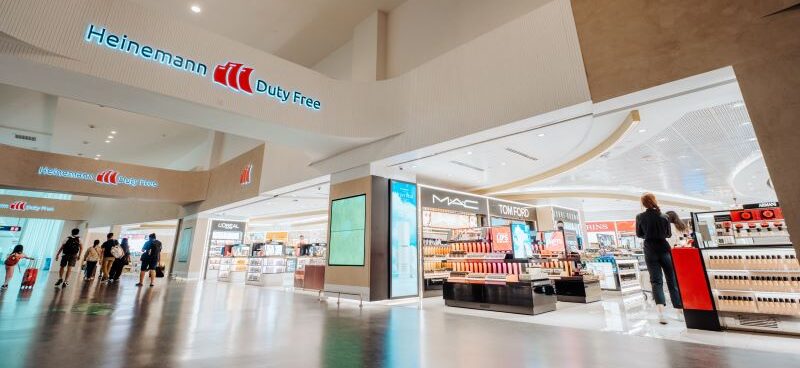
At KLIA2, the first stores under new branding opened in January 2023. Once all shops are open, Heinemann’s retail footprint will span 1,686sq m.
As reported, Sydney Airport and Heinemann are to open an Australian first in August, with a department store concept for the airport’s domestic terminals (T2 and T3) across 2,300sq m of space.
In other developments, Heinemann reopened its food & confectionery stores at Hong Kong International Airport on 1 May.
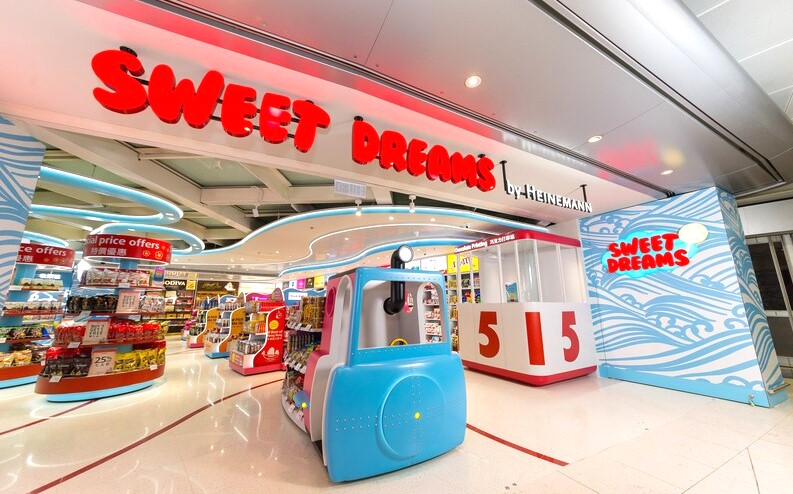
In the annual report, Heinemann Asia Pacific CEO Marvin von Plato addressed the route to growth in that region.
“The first [pillar] is our core business of airport retail, where we anticipate immediate to short-term opportunities.” Between 2022 and 2025, 15 airport retail concessions are scheduled to come up for tender across the region with a total projected sales value of over US$2 billion, he noted. “We intend to build on our key markets, and continue the momentum created by the recent additions to our distribution portfolio in Fukuoka International Airport, our first in Japan, and Sydney Airport’s domestic terminal retail concession.”
The second pillar lies in diversifying the company’s sales channels, leveraging its retail expertise and brand partnerships to extend into the domestic retail and distribution markets. This will also build on its first forays into downtown retail in 2021 when it opened its perfumes & cosmetics and confectionery stores in Macau.
In key markets closer to home, Istanbul and Tel Aviv are powering ahead of pre-pandemic sales, the former driven by Middle East and Russian customers in the luxury segments.
On the downside, driven by the Ukraine-Russia conflict, the company confirmed that it is selling its shares in its Russian retail joint ventures to its local partners, but will remain involved in the wholesale business, “in line with the sanctions regime”. The Russian retail business was worth around €250 million a year in turnover.
Supply chain and the assortment – “Think big, act boldly and learn fast”
With its brand partners, Gebr. Heinemann has come through the supply chain problems of the past two years relatively well, though more work remains, said Co-CEO Raoul Spanger.
From a fulfilment rate of around 65% in June last year, it climbed to 77% in January and 87% by March.
Spanger said: “This includes an investment of €80 million in stocks and in reserves to be on the safe side. Also from having a three-month forecast with all our suppliers, we have now six months. That is a big difference.
“Be concrete, permanent in dialogue and create better forecasts – that is how we move forward,” said Spanger. “Where our cooperation on the supplier side is good, our fulfilment rate has always been better. We are tighter and better organised that ever now.”
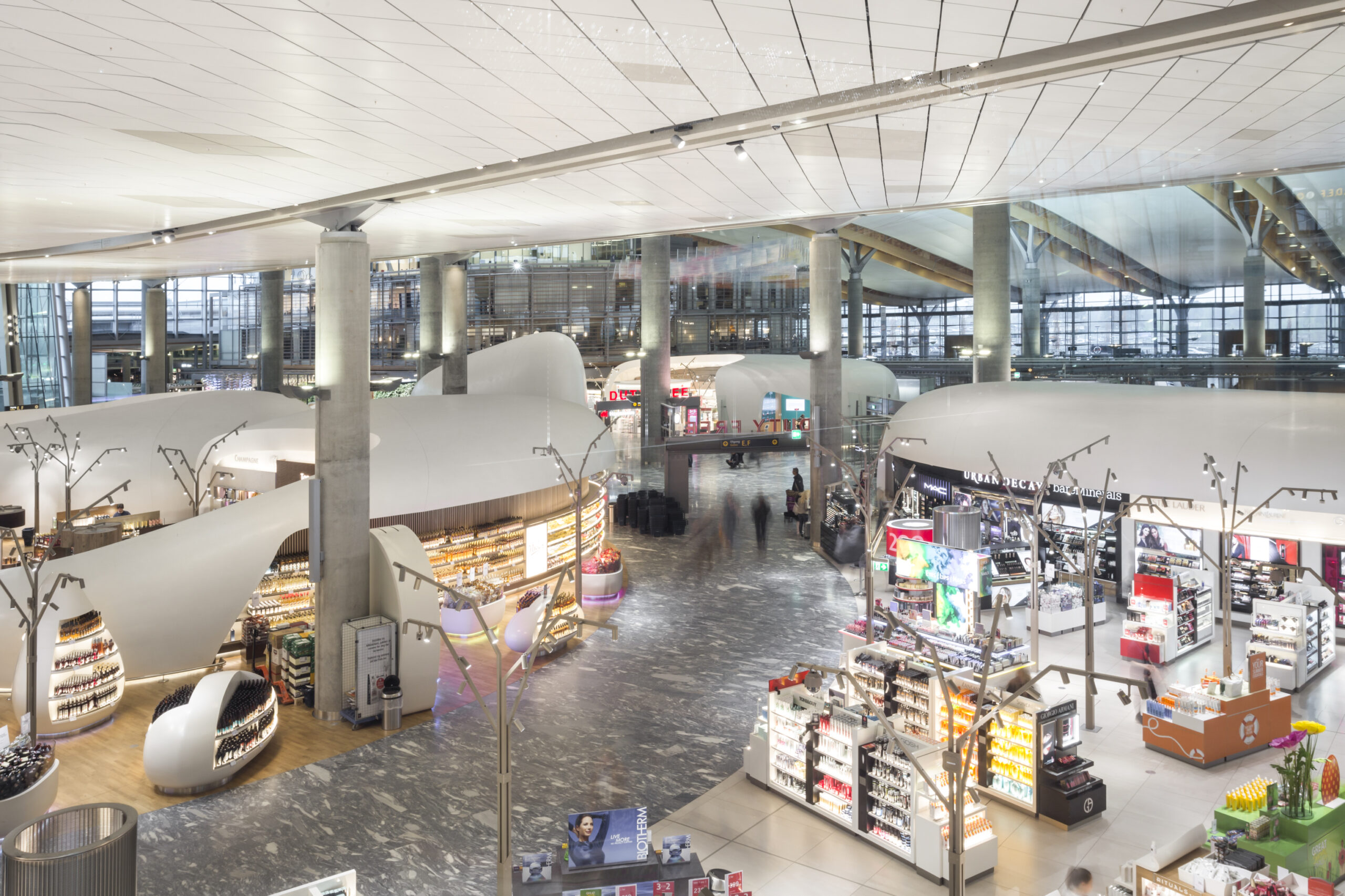
Chief Commercial Officer Dr. Dirk Schneider also addressed the future of assortments in the annual report.
“Think big, act boldly and learn fast” was one key message. Schneider said: “We now need partners who are willing to make change happen. Partners who are creators and not administrators. This could also mean that they join us in experimenting with what lies off the beaten track in travel retail. We are asking ourselves what the travelling consumers of tomorrow need and how we can excite them? And then it’s a matter of courageously trying out new things.”
The Düsseldorf Airport opening this Summer, like Heinemann’s Sydney and Oslo investments, represents an opportunity to add newness and excitement.
Schneider said: “After the refurbishment in Düsseldorf, we will offer significantly more brands and put a big focus on regional assortments, travel exclusives and even Düsseldorf exclusives. In addition, we will offer frequently changing assortments and set up dedicated areas for trends and new brands.”
Newness at Sydney Airport (as featured in our on location report from February) includes Chanel les Exclusifs and Dior La Collection Privée – both available for the first time and exclusively in travel retail in Oceania with Heinemann. In the fashion segment, there are newly listed line such as Vetements, Chloé, Kenzo and MM6 Maison Margiela.

Previewing the new Norway offer, Schneider highlighted regionally-inspired shop design, plus a focus on categories such as wine with a newly created wine room.
“Together with the global bestseller brands we also offer attractive assortments of local manufacturers, like Norwegian beers and ciders, skincare and make up as well as knitwear. Travellers can browse a wider assortment than before offered within the new cross-category concepts. Among the highlights of the new shops, we present global trends such as Kylie Cosmetics. Sustainable and conscious offers will be available in the shop and online.”
Innovating for travel retail’s future
As media guests to Hamburg for the press event discovered, knowledge and innovation hub GHARAGE will an increasing role in driving new ideas for the future of the company and the industry.
Max Heinemann said: “We want to challenge the status quo, invite great ideas carefully but clearly into our industry, from start-up scenarios to venture building. For so long our industry grew comfortably due to the rise of travel. But we have to be careful that we are not getting too comfortable again. And with that you need to start with small stories, test them out, and bring them into the world.”

Of the vision hub, Heinemann said: “GHARAGE is an innovation driver and has built up a diverse portfolio of ventures. What is common to all of them is the aim to open up new target groups and use new technologies for the travellers’ benefit.”
In April 2022, GATEZERO premiered in Copenhagen as a destination for new Gen Z luxury consumers. In-store analysis has shown that an average of 70% of shoppers are under the age of 30.
Gebr. Heineman underscored its belief that technologies like web3 and blockchain will also have an impact on travel retail, with its venture Amber Island already making use of these technologies.
The company noted: “The web3 community offers its members access to rare and limited collectable whiskeys through NFTs (non-fungible tokens). The feedback from the community and from distilleries who want to collaborate is very positive. Furthermore, the Duffle app, a quick delivery platform for airport retail, went live in January 2023. The app targets the younger, more digitally driven shoppers. Gebr. Heinemann, via GHARAGE, invested and actively supported the venture.”
“It is great to see how these ventures came to life in 2022 and made it possible for us to create real change in the industry,” said Heinemann.
The outlook for 2023
“Q1 trading is very positive, +51% above last year and ahead of budget. We are confident we can reach pre-crisis turnover and that we will grow +30% year-on-year in 2023.” So said a bullish CFO Dr. Kai Deneke about the prospects for the year ahead at Gebr. Heinemann.
Investment in systems to continue modernising the company would accelerate, he added. Last year, at the Hamburg headquarters, Heinemann spent over €12 million in the development of processes and systems, and in 2023 it will almost double that amount.
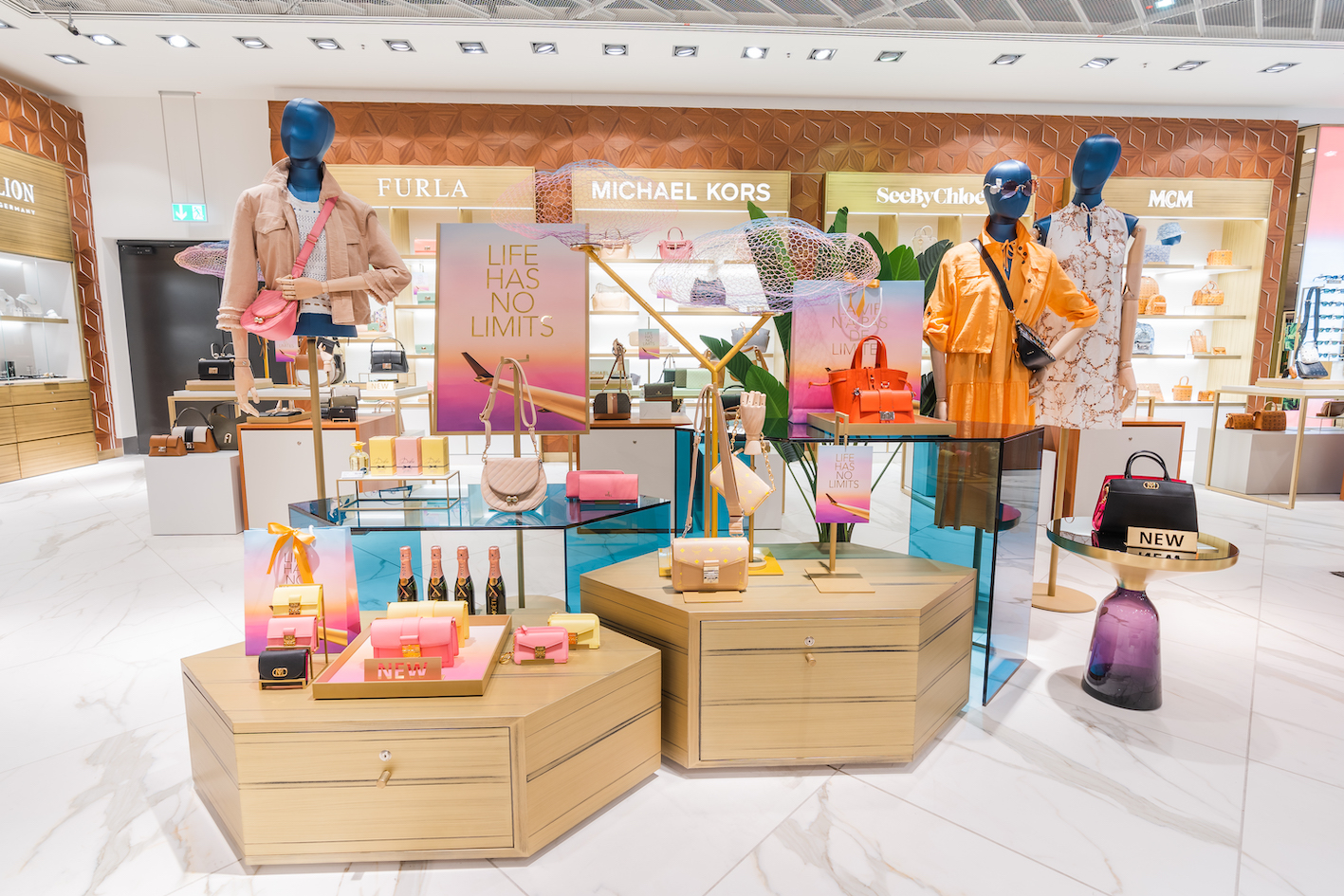
“Uncertainties remain,” Deneke noted. “We must carefully manage our costs and cash flow. We don’t know how quickly the Chinese customers will return. There remains the Ukraine-Russia conflict and supply chain, though improved, remains an issue.”
Deneke also hailed that return to profitability in 2022 – after a breakeven year in 2022 – as especially significant.
“This came without any special effects or conditions, from government supports to agreements with the airports. This was really about our own efforts, careful management and cost discipline.
“From a CFO perspective, another great result was that we reached compliance with our group financing covenants (based on a syndicated loan agreed in early 2020) two quarters ahead of plan.”
In November, the company extended its syndicated loan agreement with banking partners until January 2026 – which Deneke described as “a strong sign of our banks’ great trust in us as well as in the travel market. Our financing is secured and we have sufficient funds available for the projects and investments that we have prioritised in our group strategy.”
Becoming the most ‘human-centric’ travel retailer
In 2022 Gebr. Heinemann announced its new vision and mission statement – to “turn travel time into valuable time as the most human-centric company in global travel retail”.
Elaborating on how this is coming to life, Co-CEO Max Heinemann noted that it informs all projects and activities at Gebr. Heinemann. The group has drawn up a series of pledges to be fulfilled for customers and travellers – standing for “spectacular product assortments, unforgettable experiences and activating price advantages, while being a valuable travel companion with impressive employees and delivering a sustainable impact”.
Heinemann added: “The promises set out our priorities for the coming years. Everything we did last year and will do this year is aimed at implementing them. The task now is to transfer the promises into our shops and make them visible and tangible for our customers and travellers.”
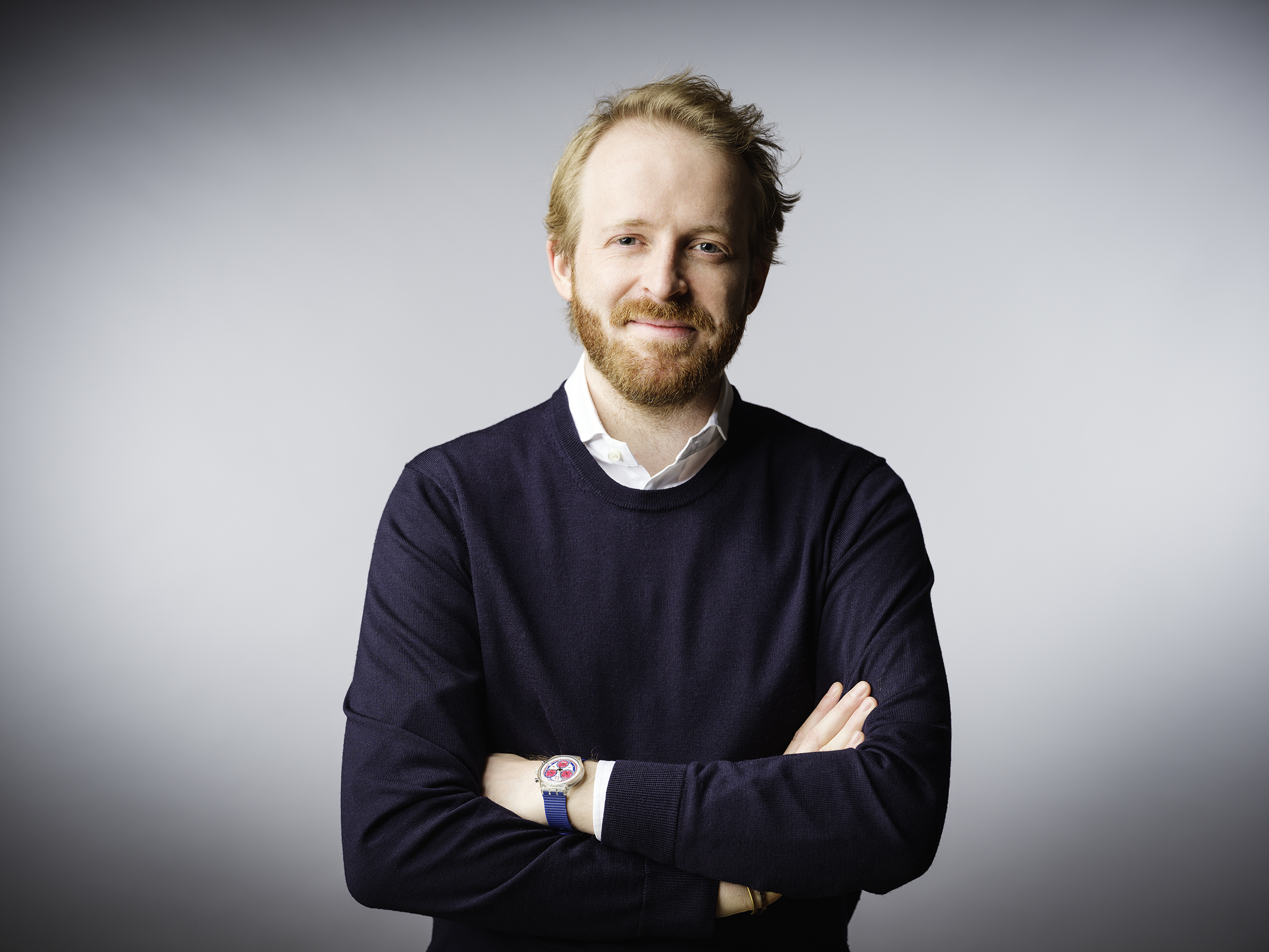
He acknowledged that fulfilling these promises also comes down to people, and having lost some people through the pandemic, this means shortage of skill, know-how and even cultural connections to the company.
“This [people element] is something we take very seriously because this is one of the most biggest success factors of our company over all these years. Our mission statement must give purpose to people, to ensure they can build their skills but in turn help us to grow.
“We can tell a new growth story as an industry, as a company, and you need to do that with your mission statement so people will find their home here, have freedom to grow and to influence. We are global and have these vast skillsets around the world and intend to use this heavily in future – with diversity and exchange in the workforce.
“People and skills – that is probably the biggest priority that we have because if we want to tell our story or bring digitalisation and innovation and creativity to our marketplaces and shape travel retail, we need the people. And we need to do that in a clear, cultural and human way, a Heinemann way. We will place a lot of emphasis on this.”
Co-CEO Raoul Spanger said: “We never said we want to be the biggest; it’s not realistic and it’s not our target. But to show you are the most human-centric travel retail company is something we have to measure and to prove. Then to turn travel time into variable time, this is really a new high target.
“The vision in our company is to reach this very high goal, but it is long term, eight to ten years. We have prepared ourselves and all our teams, our efforts and our motivations go into fulfilling this vision in the next years. That means of course internally ensuring that people have a clearer picture and that our partners worldwide know what that means.”
*This article first appeared in The Moodie Davitt eZine. Click here for that version.











